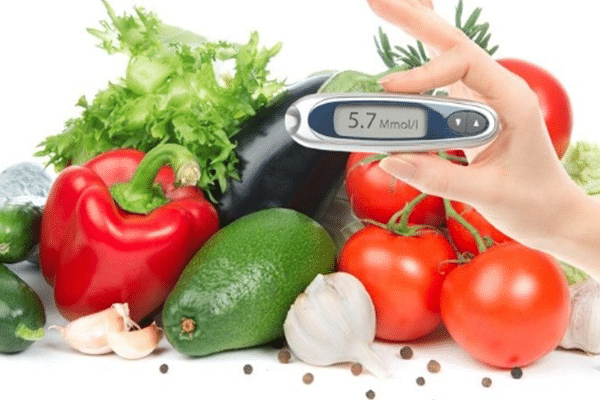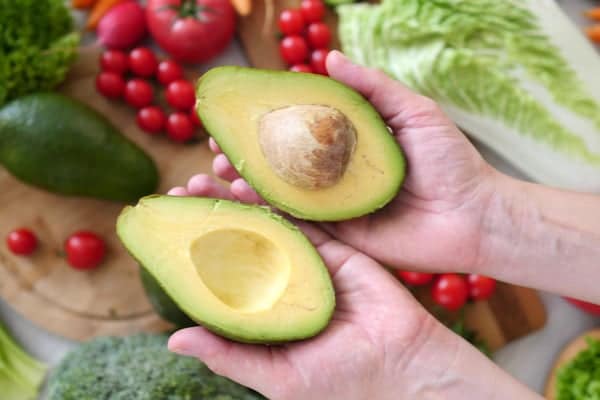Does your stomach look distended no matter what you eat? You might be dealing with chronic bloat, an inconvenient digestive condition that can impact your quality of life. Bloating can be challenging to address unless you understand what’s causing your symptoms in the first place, so this article will dive into the details of gut health and bloating treatment.
What is Chronic Bloat, and What Causes It?
Most of us know abdominal bloating as the sensation of feeling uncomfortably full or gassy, especially after a meal. Bloating’s medical definition is swelling or distension, meaning that belly bloating occurs when your stomach has expanded beyond its normal size. This excess intestinal gas is what leads to unpleasant side effects like burping, flatulence, cramping, and feelings of fullness.
The primary cause of bloating is an excess of gas in your intestines, and common causes of a gas buildup include the following:
- Swallowing too much air while drinking or chewing gum
- Filling up on fatty foods
- Eating too much or too quickly
- A food sensitivity or intolerance
- Abdominal adhesions due to surgery, like a hysterectomy
- Bacteria that produce gas when they break down food in your digestive system
- Intestinal disorders like irritable bowel syndrome (IBS), inflammatory bowel disease (IBD), Crohn’s disease, Leaky Gut Syndrome, and small intestinal bacterial overgrowth (SIBO)
- Undiagnosed stomach infections
- Too much fluid retention due to a high-salt diet, diabetes, or kidney failure
- PMS or a pregnancy
- A regular smoking habit
- Gallstones or liver disease
- A diet high in fibrous foods (especially if it’s a new change)
- Consuming carbonated beverages and/or artificial sweeteners

Get Your Free Guide to Becoming a Holistic Nutritionist
Learn about the important role of holistic nutritionists, what it takes to be successful as one, and how to build a lucrative, impactful career in nutrition.
10 Bloating Remedies for Relief
Because bloating has so many potential causes, there isn’t one remedy that works for everyone. That’s why it’s important to experiment with different strategies until you find what works for you. Below are ten common bloating cures that work for many people. Try them for yourself, and you might find yourself feeling better faster.
1. Eat Smaller Portions for Every Meal
It’s far from surprising that overfilling your stomach can lead to bloating. If you tend to feel uncomfortable after eating, consider switching to smaller portions every time you eat, and make time for a fourth meal if necessary.
To maximize the effectiveness of this approach, it’s best to take the time to chew your food thoroughly. Not only does this reduce the amount of air you swallow, but it also forces you to eat slower, which can reduce your overall food intake. Strive to make your meals last 20 minutes or more, and you’ll be more likely to feel full without overfilling yourself.
2. Rule Out Allergies and Intolerances
Undiagnosed food allergies and intolerances are two of the most common causes of bloating, so it’s important to rule them out before trying other remedies. When you eat food your system has an intolerance to, they can trigger the excess gas production that leads to bloating and flatulence.
Some of the food types to pay close attention to include lactose (milk sugar), fructose (fruit sugar), eggs, wheat, and gluten. Experiment with cutting one category of these foods out of your diet at a time, and you can determine through trial and error whether one is the source of your digestive discomfort.
3. Follow a Low-FODMAP Diet
If a basic elimination diet isn’t helping your stomach settle down, the next step might be to follow a low-FODMAP diet. FODMAPS (fermentable oligosaccharides, disaccharides, monosaccharides, and polyols) are short-chain carbohydrates that your small intestine struggles to absorb, meaning that they tend to ferment in the gut. Aiming for a low-FODMAP diet has proven positive effects on the symptoms of irritable bowel syndrome, especially bloating.
Foods that tend to be high in FODMAPs include the following:
- Fruits like apples, pears, avocados, mangos, plums, watermelon, and blackberries.
- Vegetables and legumes like broccoli, bell peppers, Brussels sprouts, asparagus, cabbage, eggplant, onion, garlic, lentils, kidney beans, and more.
- Artificial sweeteners like sorbitol and maltitol (usually found in candy and gum).
- Dairy products like milk, yogurt, ice cream, and soft cheeses.
You’re not wrong if you think that a low-fodmap diet sounds challenging to follow. Numerous otherwise healthy foods make this list, which means that this isn’t a diet for the long-term. Instead, it’s a way to curb extreme bloating before it becomes unmanageable. For this reason, it’s best to follow a low-FODMAP diet for three months or less, and then to slowly introduce the foods on this list to your diet to see whether your stomach still acts unsettled when you eat them.
4. Avoid Carbonated Beverages
There are two sources of gas in your digestive system; the gasses produced by the bacteria in your gut, and the air that you swallow while eating or drinking. Fizzy drinks increase your air intake, as they contain carbon dioxide that is released as gas once it reaches your stomach. You’ll also swallow more air if you chew gum, drink through a straw, or eat food too quickly, so change up these habits if you want to stop the burps and bloat.
5. Follow a Diet High in Soluble Fibers
High fiber foods are great for digestion, but they sometimes trigger excess bloating. Rather than cutting this important food category out of your diet, prioritize soluble fiber foods like fruits and vegetables, rather than grains and legumes.
{{cta(‘9939cecd-70dd-4287-8316-a6c4b0c15c4f’)}}
6. Limit Your Sugar Alcohols
Sugar alcohols are compounds commonly found in sugar-free foods and chewing gum. While they are typically considered a safe alternative to sugar, some people find that they cause them digestive problems. That’s because your large intestine’s bacteria can quickly break them down, creating gas production in the process.
Some of the compounds to avoid include sorbitol, mannitol, and xylitol. A few people also struggle with erythritol in high doses, though small amounts tend to be tolerated.
7. Eat Peppermint
In some instance, bloating results from changes in the functioning of the muscles within the digestive tract that cause them to spasm. You can take antispasmodics to alleviate these spams, but peppermint oil is a natural substance that is also proven effective. The research shows that this oil can reduce a variety of IBS symptoms, including bloating. For the best benefit, consider taking a peppermint oil supplement when you feel your stomach starting to seize up. High-Quality peppermint tea can also work in a pinch.
8. Practice an Ayurvedic Eating Style
Ayurveda is an Indian traditional medicine approach that focuses on the balance between three elemental substances within the body, which are known as doshas. These include wind (vāta), bile (pitta) and phlegm (kapha). Any inequality between the doshas can lead to health problems, including bloating and stomach pain.
The best way to get your system back on track, according to Ayurvedic medicine, is to maintain proper digestion and support a healthy metabolic system within your body. You can achieve this by eating a balanced diet that includes all six tastes: sweet, sour, salty, bitter, pungent and astringent. For the best results, strive to get a small amount of each flavor profile in every meal.
Raw foods are recommended because of their rich vitamin and mineral content, but too much can lead to digestive problems because of the high fiber content. It’s also smart to avoid eating combinations of heavy or fried foods, such as bread or potatoes with meat, as they can be difficult to digest together.
Learn more about how to follow Ayurvedic eating strategies for better digestion here.
9. Try Digestive Enzyme Supplements
If the bacteria in your digestive tract are causing you problems, certain over-the-counter medications can provide you with the necessary enzymes to break down the carbohydrates responsible for bloating. Two common options are Lactase and Beano. Lactase works for those with milk sensitivities, and Beano contains the enzyme alpha-galactosidase, which breaks down fibrous compounds in legumes and other produce.
Note: Though these products often provide immediate relief, they shouldn’t be viewed as a long-term solution. The best way to manage your digestion for good is to eliminate the triggering foods from your diet altogether (at least temporarily).
10. Take Probiotics
Gut bacteria have been villainized within this article, but the truth is that the right varieties might be the key to eliminating your chronic bloating. Studies show that certain probiotic supplements reduce gas production and bloating for those with digestive problems, and they offer profound health benefits, such as better nutrient absorption, steadier heart functioning, and less severity for allergies and eczema.
You can add probiotic-rich foods to your diet like yogurt and homemade fermented foods, or you can take an over the counter probiotic supplement. Look for varieties that contain Bifidobacterium infantis 35624 if you have the symptoms of irritable bowel syndrome, and Bifidobacterium animalis DN-0173 10 if you’re dealing with constipation.
When Bloating is More Than an Inconvenience
Sometimes, chronic bloating isn’t as harmless as a belly full of gas. It can also be a side effect for numerous health conditions, including certain cancers and digestive diseases. If your bloating is paired with symptoms like inexplicable weight loss, a build-up of fluid in the abdomen (known as ascites), blood in your stools, or severe abdominal pain, please ensure you visit a specialist as these can be symptoms of much more serious conditions.
Take the Time to Treat Your Digestive System Right
There’s nothing worse than living with stomach problems like chronic bloating, so take these suggestions seriously to get the problem under control. If these measures don’t make enough of a difference for your symptoms after a few weeks, it’s best to make an appointment with a specialist to ensure you stay on top of your health.




